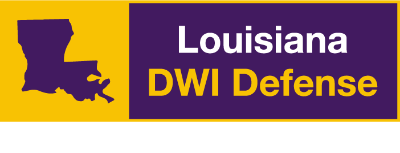1. What are officers looking for when they search for a drunk driver?
Swerving
Weaving
Drifting
Headlights are off
Speed is more than 10 mph below the limit
Following too closely
Slow response to traffic signals
2. What are officers looking for when they pull over a drunk driver?
Slurred speech
Flushed face
Swaying
Red, glassy, and/or bloodshot eyes
Odor of what appears to be an alcoholic beverage
3. What if I’m asked to take a field sobriety test in Louisiana?
Politely refuse to take field sobriety tests, They are not legally required in Louisiana. Typically an officer has already made up his or her mind about arresting you for drunk driving; a field sobriety test just provides additional evidence.
4. Do I have the right to a DWI attorney if I’m asked to take a field sobriety test?
No, typically you do not have the right to a DWI attorney until you are arrested. But you can refuse all field sobriety tests. We call field sobriety tests roadside gymnastics that are designed for failure. You cannot pass them so why would you take them?
Politely ask the officer if you are free to go. If he or she says no, ask to speak to an attorney ASAP.
5. Should I take a chemical test?
You have a RIGHT to submit or refuse the chemical test. Never submit to a breath test unless you demand a blood test.
6. What will happen if I refuse?
Refusal to take a breathalyzer or chemical test can be used against you in court, but so can the test results if you submit.
Refusing a DWI chemical test will result in your driver’s license being suspended; the length of suspension varies on how many times you’ve been arrested for DWI and/or refused DWI chemical tests in the past.
Refusal is not a crime; jail time will not be given unless you have refused the test more than twice within 5 years.
7. Do I have a choice of DWI chemical tests? If so, which should I choose?
Typically you do not get to choose which DWI chemical test you’ll be given. But if you take a breathalyzer test you can get a blood or urine test as well because a breath sample cannot be saved for future retesting. If you have a medical reason that could limit your ability to take a breathalyzer test, tell the officer and request a blood or urine test.
8. Why was I charged for two DWI crimes?
One is a civil charge and involves your driver’s license, while the other is the actual DUI or DWI criminal charge, which is a misdemeanor in most cases and a felony under certain circumstances.
9. My driver’s license was confiscated and I was told it was suspended after the breath test. Is this legal?
In Louisiana your driver’s license can be suspended immediately if your breathalyzer results are above the legal limit, or you refuse to take the chemical test and do not request an administrative hearing to fight the suspension within 15 days from the date of your arrest.
Once you request the hearing, the DMV will have to prove that the suspension is lawful before your license will be suspended.
10. If I have some questions about my case, whom do I ask?
The National College of DWI Defense, Inc. website www.ncdd.com is a good resource for drunk driving information.
Law schools, courthouses and libraries have a lot of information regarding drunk driving, DUI/DWI laws, blood alcohol analysis. LSA-RS.14:98 et seq.
Contact a DWI Attorney who specializes in drunk driving laws.
11. How do I know when I’m legally drunk?
In Louisiana your blood alcohol content must be 0.08 or higher. If you’re underaged then a blood alcohol content of 0.02 or higher constitutes legally drunk.
Check the blood alcohol impairment chart for a rough estimate.


